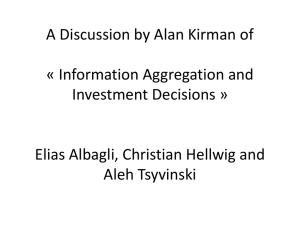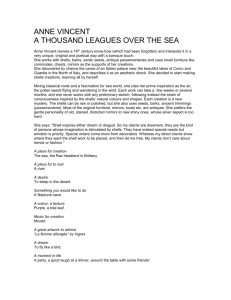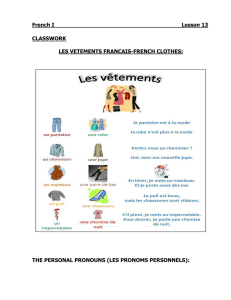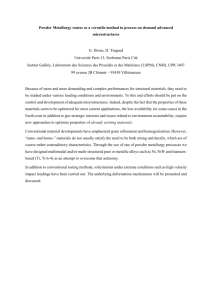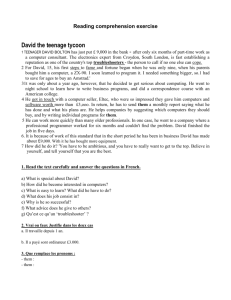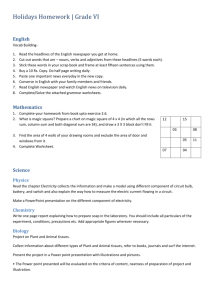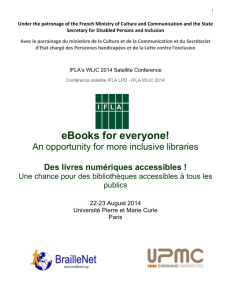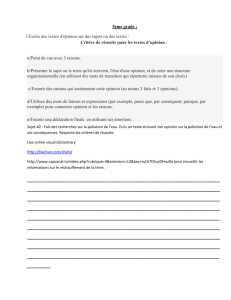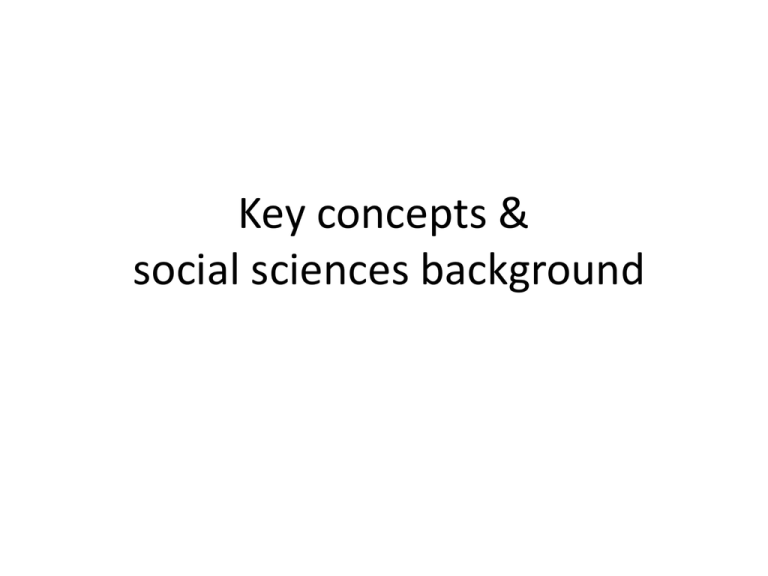
Key concepts &
social sciences background
What do you think of it?
What are the key controversial
concepts behind this?
→ “Men feel comfortable acting in public area,
while women are guardians of the private area”
→“Women have to work much harder than men
to achieve the same position in the society.”
→ Biological sex is unchanging (trouver une
phrase plus subtile!!!)
“Men feel comfortable acting in public
area, while women are guardians of
the private area”
Masculine / feminine traits - Innate / learned social roles - sex / gender
Gender - gender studies
Anthropologist Margaret Mead
Sex and Temperament in 3 primitive societies
(1935)
• Laid the foundation for much of our contemporary
sociological research and debate on gender.
→ are « masculine » and « feminine » traits innate or
learned?
→ do men and women differ because of nature (heredity)
or nurture (socialization)?
=> For M.Mead cultural conditioning is more important
than biology in shaping women and men’s behaviour.
Arapesh people
• Men = Women
Both :
- « maternal » in its parental aspects
- « feminine » in its sexual aspects
- Cooperative, unaggressive, responsive to the
needs of others
Mundugumor people
• Men = Women
Both :
- ruthless, aggressive
- Not « maternal » at all
- Undisciplined and violent
Tchambuli people
• Men ≠ Women
Men :
Emotionnaly
dependant person
Less responsible
Women :
Dominant
Impersonnal
Managing partner
=> Definitive conclusion : no basis for regarding specific
behaviours or traits we traditionally regarded as feminin
or masculin as sex-linked.
Gender
SEX
GENDER
Is innate
Is learned. It is a social and historical
construction
Refers to:
Biological, natural, physical differences
Refers to:
Way of thinking and feeling
Position in the society
Identity - way to introduce yourself…
Council of Europe : Gender is a socially constructed definition of women and men. It is
the social design of a biological sex, determined by the conception of tasks, functions
and roles attributed to women and men in society and in public and private life. It is a
culture specific definition of femininity and masculinity and therefore varies in time and
space.
Gender and Culture
• Euromed heteroneous context towards new
guinea?
• G.Hofstede
Brief presentation of 5 dimensions
Focus on Masculinity/Feminity Dimension
Hoftstede’s definitions
From Hofstede (2001), Culture’s Consequences
• “Masculinity stands for a society in which social
gender roles are clearly distinct: Men are
supposed to be assertive, tough, and focused on
material success; women are supposed to be
more modest, tender, and concerned with the
quality of life.”
• “Femininity stands for a society in which social
gender roles overlap: Both men and women are
supposed to be modest, tender, and concerned
with the quality of life.”
“Women have to work much harder
than men to achieve the same position
in the society.”
• Sexist jokes - Inequality - discrimination Gender equality - gender mainstreaming /
positive(affirmative) action
Biological sex is unchanging (trouver
une phrase plus subtile!!!)
• Heterosexuality / Homosexuality - LGBT - Gay lesbian transsexualism- transgender breaking norms - queer - discrimination
Sexual identity - gender identity
How do you say gender issue in your
mother tongue? Is it a political issue?
Conclusion
• Food for thought :
Translation problem, controversial theories,
what consequence for youth work?
Political frame
•
1979 : CEDAW (Convention on the Elimination of all forms of Discrimination
against Women) , a UN major tool .
• 1995 – Conférence mondiale sur les femmes, Pékin : un tournant majeur.
• Véritable charte refondatrice des droits des femmes, la Déclaration de Pékin
consolide et précise le travail engagé vingt ans plus tôt. Les gouvernements
reconnaissent que « l’égalité des droits, des chances et de l’accès aux ressources,
le partage égal des responsabilités familiales et un partenariat harmonieux
entre les femmes et les hommes sont essentiels à leur bien-être et à celui de leurs
familles ainsi qu’à l’affermissement de la démocratie ». La Conférence de Pékin
proclame que l’égalité entre les femmes et les hommes est une condition essentielle
du développement durable, de la paix et de la démocratie.
• 2005 – Pékin +10 : La 49e session de la Commission des Nations unies sur le
statut de la femme réaffirme les acquis de la déclaration et du Programme
d’action de Pékin de la façon la plus ferme possible dans un contexte marqué par
des risques de régressions.
EU and
equality between women and men
http://www.femmes-europe.eu/parite.php
• Principle included in the Rome Treaty.
• To achieve this goal the EU has established
legal (directives) and political tools.
• Moreover gender has been integrated into all
sectors of European and national political
processes as a whole. (gender mainstreaming)
Legislation in support of equality
between women and men
• to reduce the differences in the treatment of
men and women in the workplace in terms of
wages, access to employment and training etc.
• to promote gender equality in the social area
such as in social security, maternity and
parental leave.
http://www.rue89.com/2010/09/19/sur-la-porte-des-wcdes-panneaux-qui-font-mauvais-genre-166388

